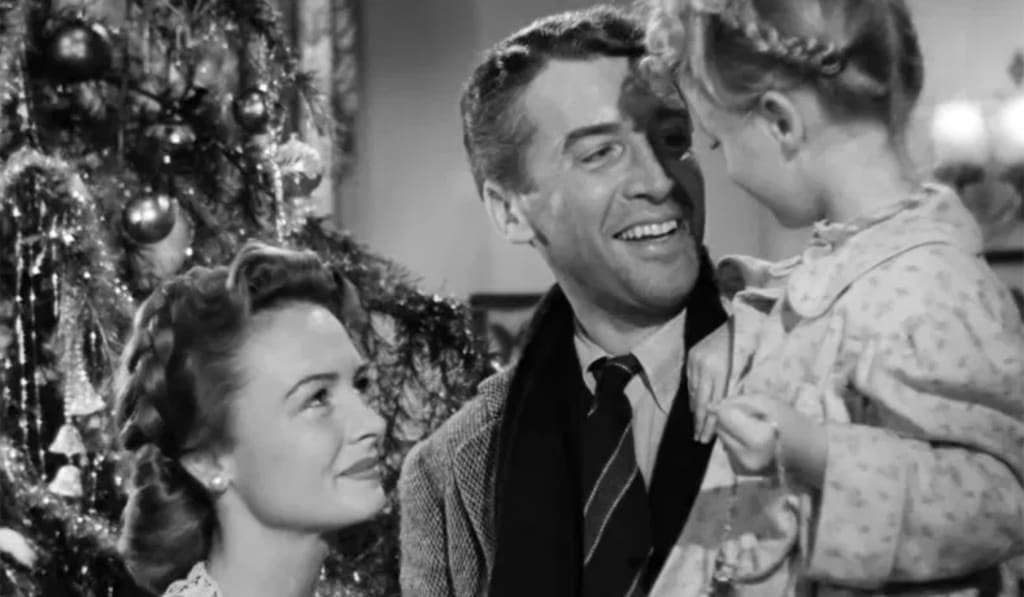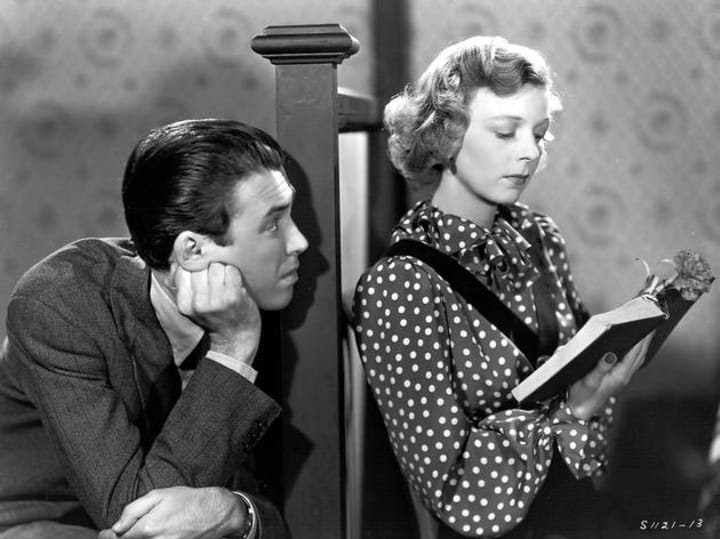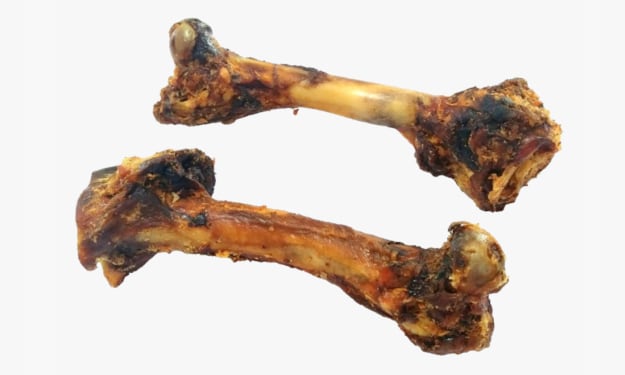The film that saved my life – and another that made it worth living
Old? Boring? Not worth a second glance? I may be, but these movies certainly aren’t!

Very few movies have literally saved lives, with the possible exception of those worthy-but-dull road safety films that can make you wonder why you bother living at all.
But the movie that saved my life has saved countless others, too - which is ironic when you consider that the film’s hero is seen heading at one point for the nearest jump-offable bridge, loudly wishing he were dead.
If you’ve ever seen it, you’ll already have realised I’m talking about the James Stewart classic It’s A Wonderful Life, a movie that regularly tops the polls as the best-loved film of all time.
Some people refuse to watch it on principle. After all, it’s old, it’s in black-and-white, and there’s no sex, drugs, or violence.
Why on Earth would anyone want to watch that?
And yet the rest of us do, in our millions, and wouldn’t consider Christmas to be Christmas without watching it at least once over the holiday period.
compassion
But I came to it differently. Despite being a reasonably competent journalist in my professional life, my self-confidence drained away the moment I closed my notebook each night and I spent my twenties and thirties as a dead man walking - unlucky in love, feeling sorry for myself, and more often than not hoping I wouldn’t wake up in the morning.
I wasn’t much fun to be with. Even I didn’t enjoy being with me. And the most devoted of my friends were understandably suffering from compassion fatigue.
But one man - a younger-than-me boss, as it happened - saw right into my soul, saw the distress I was trying to hide, and reached for his secret weapon.
It was a VHS tape of It’s A Wonderful Life - a film I’d never even heard of - and despite being a Glaswegian and therefore banned from showing any emotions as a man, he warned me that the film always made him cry.
That I had to see. Which, of course, meant I had to see the film, too.
I didn’t expect much. When people rave about films to me, I’m usually disappointed. But he told me the plot of the film first, and even a cynical journalist like me was captivated.
suicidal
It was about a man, he said, who’d spent his life helping other people, sacrificing his dreams of escape to let others pursue theirs, only to find himself in such deep trouble that he thinks the only way out is to kill himself.
He teeters on the precipice of a bridge above a raging torrent, and is just about to plunge to his inevitable death when an angel (I know, I know) saves his life by jumping in and getting the suicidal hero to rescue him.
As our hero dries out, he tells the angel that he wishes he’d never been born - and it’s from that point, from that very frame, that the film transforms from merely whimsical to utterly wonderful.
The angel, desperate to earn his wings (stick with me here: he’s funny, he’s cute, and you’ll love him) decides to grant our hero his wish.
Taking him back into the town, the angel shows him what the world would have been like if, indeed, he hadn’t been born.
People our hero thought he had saved from going into prison or prostitution are now on parole and on the streets; his brother, whom he’d saved from dying in an icy pond, is now in his grave, while the hundreds of soldiers his brother should have saved as a war hero died because he’d never been there to help them.
The townsfolk who’d been able to buy their own homes thanks to the building society our hero reluctantly agreed to run are now living in slums, because the predatory property developer who controlled the town with his wealth has gone unchallenged and unthwarted.
cunning
When he can finally take no more, the angel tells him he’s been given the gift of seeing what the world would be like if he hadn’t existed.
All the good he’d ever done had never happened, and the hole his absence had left was cavernous, with consequences echoing down the generations.
Our hero, shown how even one man’s life can touch and enhance so many others’, begs the angel to let him live again and, well, you’ll have to watch the movie to see the rest.
I did, and my boss’s cunning plan worked. For while I hadn’t done nearly as much good as George Bailey in the film, I realised how my presence on this planet had made at least a little difference, albeit a modest one, to numerous people who, in some cases, wouldn’t have even survived if I hadn’t been there to help them.
And like George, I wanted to live again. I really did.
I began to see life from a new perspective, and my Eeyoreish pessimism was replaced, slowly but surely, with an optimism that still characterises me to this day.
inspired
I went on to find love, and a love of life - and, apart from anything else, I’m glad I lived because otherwise I’d never have got to see the film you really, really, really ought to see if you love It’s A Wonderful Life.
It’s black-and-white, too, has the same lamentable lack of sex, drugs and violence, and is one of the extremely rare hundred-percenters that I simply cannot fault in any way.
Not a frame is wasted, not a syllable is surplus, and the script is the one I’d risk my life to rescue from a burning Hollywood vault if I could save only one of all the scripts that have ever been written.
Yet hardly anyone I know has even heard of it. If anything, it’s more famous for the modern film it inspired - You’ve Got Mail - though the latter, while excellent, isn’t even fit to tie the shoelaces of its predecessor.
It stars James Stewart, too, as well as a smattering of supporting actors and extras we also saw in It’s A Wonderful Life.
Set, perhaps unpromisingly, in a Budapest leather-good shop, the film has an ensemble cast headed by James Stewart’s co-star, Margaret Sullavan, and Frank Morgan, best known for playing the title role in The Wizard Of Oz.
There can be few more memorable roles than that, ever, but Frank Morgan knocks even that performance into a cocked hat as the irascible shopkeeper Hugo Matuschek, a man who dominates, controls and irritates his staff in equal measure.
wittiest
Anyone who has ever worked in a small shop for a dictatorial owner with their financial future in his hands will recognise Morgan’s performance for the masterpiece it is.
And yet that’s just a side-show.
The real plot revolves around James Stewart and Margaret Sullavan as co-workers who fight, squabble and antagonise each other throughout their working days - unaware that they’ve been corresponding with one another as anonymous pen-friends for months and are falling more and more deeply in love with each other with every post.
When he discovers her secret first and realises she’s in love with him by letter while loathing him in person, he teases her mercilessly as they build up to a denouement peppered with the wittiest, cleverest and most memorable dialogue I’ve ever seen in a movie. Period.
I’ve written tens of millions of words in my 40-year career, many of them intended to be funny, but I’d swap everything I’ve ever produced to be even a tenth as clever as the person who wrote those final scenes.
It is pure sit-com, with the humour coming from the situation itself, and James Stewart’s character turns the tension up to eleven as Margaret Sullavan’s character becomes more and more bemused - but not before patronising him par excellence, as if she were channelling the young Margaret Thatcher she so closely resembles in this film.
I refuse to spoil it for you, but trust me: you’ll absolutely love this movie, and you’ll be recommending it to everyone you know, too.
So you’ll be needing the title, then: The Shop Around The Corner.
And it’ll make your life worth living, too.

About the Creator
Jon McKnight
I have left Vocal.






Comments
There are no comments for this story
Be the first to respond and start the conversation.